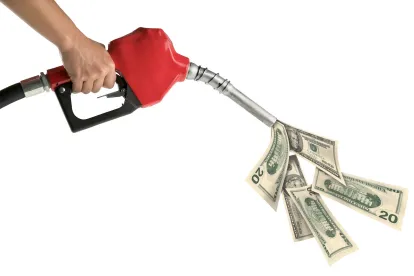One of the more aggressive steps taken by the Obama administration to reduce carbon emissions was to have the EPA set an ambitious target for Corporate Average Fuel Economy (CAFE) standards: 54.5 miles per gallon by 2025. In a release in the closing days of the administration, the EPA reaffirmed its commitment to this standard, citing the benefits of improved fuel economy versus the ability of automakers to hit these targets with manageable increases in vehicle costs.
 The Trump administration has different ideas regarding these targets. In a public announcement and an accompanying press release, President Trump announced that he would have the EPA re-review these CAFE standards, claiming that sticking to them would result in intolerable increases in vehicle costs and job losses in the automotive industry. The announcements are striking in how they tie CAFE standards to industry jobs: one of President Trump’s core positions has been that he will work to keep American jobs and prevent job losses, whether as a result of regulation or outsourcing. The press release itself puts side-by-side his announcement that CAFE standards would be reviewed, and an announcement that Ford, GM, and Fiat Chrysler had either created new jobs in the United States, or cancelled plans to open plants in Mexico.
The Trump administration has different ideas regarding these targets. In a public announcement and an accompanying press release, President Trump announced that he would have the EPA re-review these CAFE standards, claiming that sticking to them would result in intolerable increases in vehicle costs and job losses in the automotive industry. The announcements are striking in how they tie CAFE standards to industry jobs: one of President Trump’s core positions has been that he will work to keep American jobs and prevent job losses, whether as a result of regulation or outsourcing. The press release itself puts side-by-side his announcement that CAFE standards would be reviewed, and an announcement that Ford, GM, and Fiat Chrysler had either created new jobs in the United States, or cancelled plans to open plants in Mexico.
Industry figures have not missed this connection. Mark Fields, the CEO of Ford, claimed in a January meeting with the president that sticking to the Obama administration’s EPA targets would cost a million jobs (a claim that has been subject to some vigorous second guessing). Industry figures will almost certainly continue to use this as a pressure point to try to keep CAFE standards more lenient going forward. Given that President Trump did not exactly emphasize climate change as a problem during his campaign, and his appointment of Scott Pruitt (who just questioned the link between climate change and man-made greenhouse gases) to head the EPA, an agency that Pruitt had sued several times as the Oklahoma Attorney General, there will likely not be much pushback on this pressure.
Ultimately, while new standards have not yet been released, the smart money is on CAFE standards being substantially relaxed under this administration. The EPA and Department of Transportation have announced that the EPA will make its final determination on the appropriateness of the standards for 2022-25 by April 1, 2018, and this is a date that plenty of manufacturers and suppliers worldwide will have circled on their calendar.



 />i
/>i

